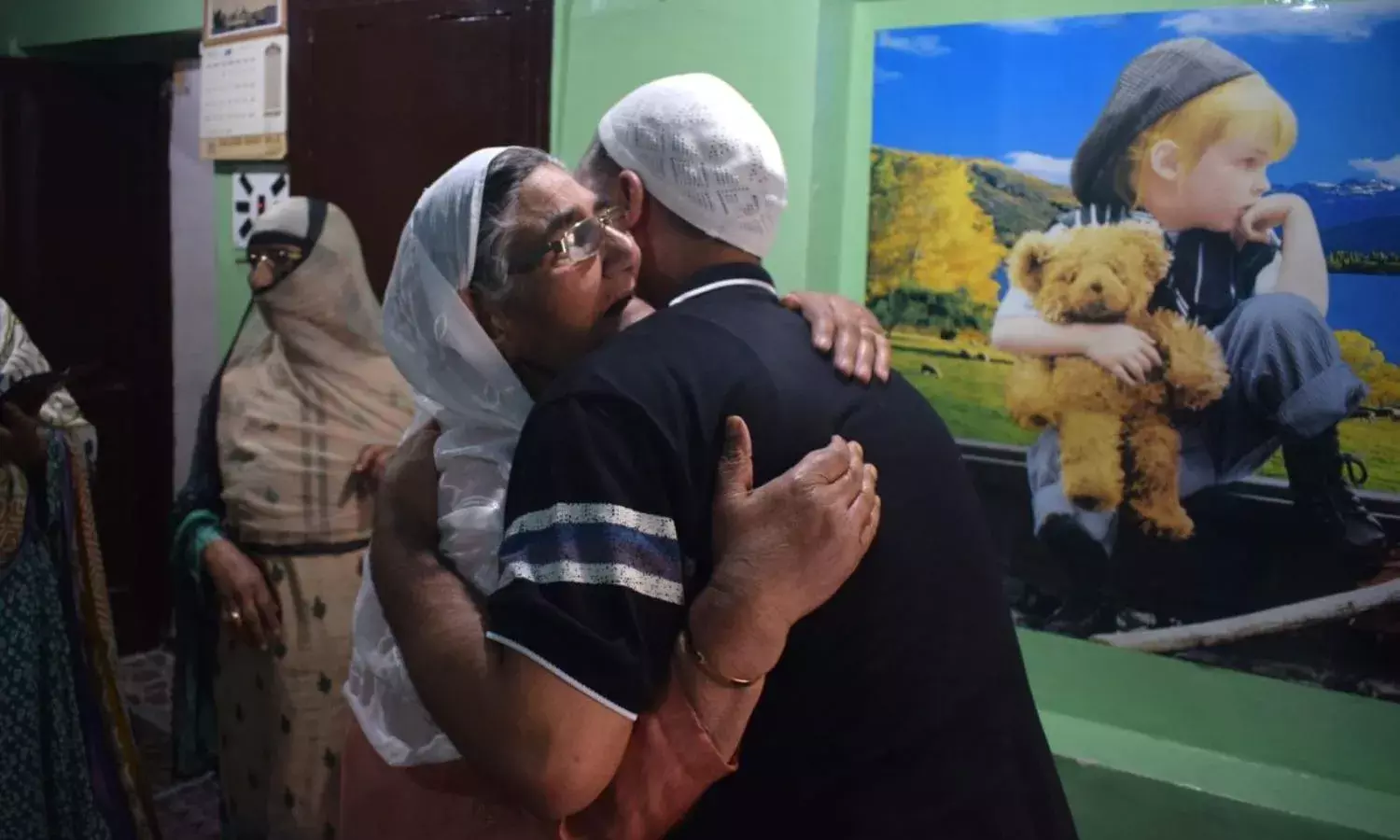'Militancy Growing Amidst Distrust in Kashmir, Statehood Essential' - Report by Concerned Citizens Group
'Nothing short of restoration of statehood would calm the public somewhat'

The people of Kashmir are unhappy with the political and economic shape the union territory is taking, have lost all hope in the democratic process and are becoming more inclined towards militancy, a new report has found.
The Ninth Concerned Citizens’ Group Report on Jammu and Kashmir brings to light the public demand for restoring statehood and a feeling of mistrust that the citizens of Kashmir have with Delhi.
The CCG is a non-official voluntary group comprising Yashwant Sinha (former External Affairs Minister of India), Sushobha Barve (Executive Secretary, Centre for Dialogue and Reconciliation, Delhi), Wajahat Habibullah (Former Chairman of the Minorities Commission and the first Chief Information Commissioner of India), Air Vice Marshal (Retd.) Kapil Kak and Bharat Bhushan, former editor and independent journalist.
In its ninth report, which came in the wake of the delimitation exercise in the state, they found that from mainstream political parties to the general public, delimitation exercise is being viewed with suspicion.
The feeling of mistrust against the central government, that was heightened after the bifurcation of the state and its down-gradation to a union territory, has continued in the state.
“Given the all-pervasive mistrust flowing from the Centre’s humiliating nullification of Articles 370 and 35A, bifurcation of the State and its down-gradation to a Union Territory all at once, suspicions and cynicism continue to persist,” the report reads.
The report quotes several political leaders and parties from the union territory who voice the same mistrust.
In the report, Mehbooba Mufti-led PDP has said, “the Delimitation Commission lacks constitutional and legal mandate. There are apprehensions that the exercise is part of the overall process of political disempowerment of the people of Jammu and Kashmir.”
The Valley’s fears lie, as per the report, in the possible manipulation of the area dimension and other non-population factors.
While generally the population is counted as the foundation of delimitation, the Commission has announced that for the exercise they would “take into account constituencies practicality, geographical compatibility, topography, physical features, means of communities and conveniences available.”
The people of Kashmir are more interested in restoring full statehood in the valley, the report said.
“In discussions with people across the socio-political spectrum, the impression we gathered was that nothing short of restoration of statehood, with the same powers as in other major states of the Union, would serve to calm the public somewhat,” the report said.
The June 24th meeting with Prime Minister Narendra Modi has not helped restore any trust.
“The Prime Minister’s statement that the issue of statehood would be considered at an “appropriate time” has met with a great deal of suspicion and cynicism,” according to the report.
The wounds of August 2019 are still fresh in their minds.
The report quotes an individual saying, “We never liked Article 370. Yet it was ours. It was a link with India. Why did you take it away? We feel betrayed.”
The report states the people have also snapped any connection with the leaders of the mainstream political parties who they say have “cheated us in the past”.
People in the newly formed union territory are refusing to go to the courts as they claim that “appeals to the judiciary are futile.”
Under the central government ruled union territory, the report said, many complain that a system of ‘Baburaj’ has grown in the valley.
A journalist from the valley quoted in the report opined, “Earlier politicians indulged in money-making and now after August 5, 2019, it is corruption by the ‘babus’. It is jungle raj in J&K today.”
With the political life going astray, economic life in the valley has also taken a turn for the worse, as per the report.
The Kashmir Economic Alliance (KEA) said that from August 2019 till the present, the business was shut for 11 out of the 13 months, first due to the abrogation of Article 370 and 35A, and then due to the Covid-19 pandemic.
“The estimated loss to the business, the KEA claimed, was approximately Rs. 70,000 crore – of this Rs.50,000 crore was due to closures and another Rs. 20,000 crore due to falling sales as demand contraction due to falling purchasing power,” the report states.
Hopes of increasing revenue and investment post the abrogation of the said articles have also not been achieved, say the people quoted in the report.
In the midst of political and economic upheaval, the tendency of the youth towards militancy has become more intense, said a community leader quoted in the report.
A social worker from Pulwama who has been mentioned in the report said, “The youth was being pushed towards militancy because of the harassment faced by people at the hands of the army personnel. There are no jobs for the young. They have only two options before them – militancy or committing suicide.”
As a note of warning towards the end, the report quotes an activist saying, “Don’t worry about how radicalised Kashmir is becoming. The real question you should ask yourself is: How radicalised India has become?”
Cover Photograph BASIT ZARGAR: Bashir Ahmad Baba of Rainwari area in Srinagar was acquitted of all charges and released after spending 11 years in Jail. A sessions court in Gujarat cleared Bashir Ahmed alias Aijaz Baba (43), of charges under the Unlawful Activities Prevention Act (UAPA) and ordered his release



